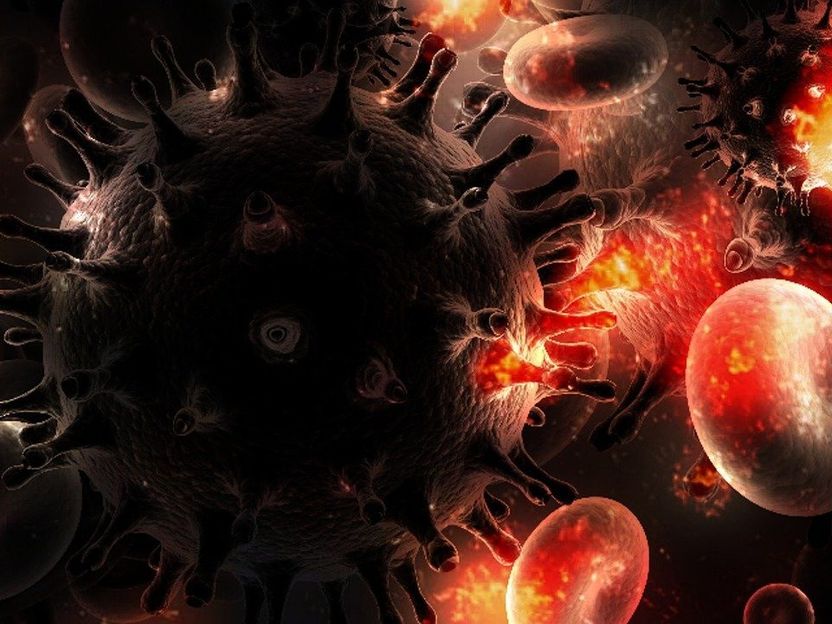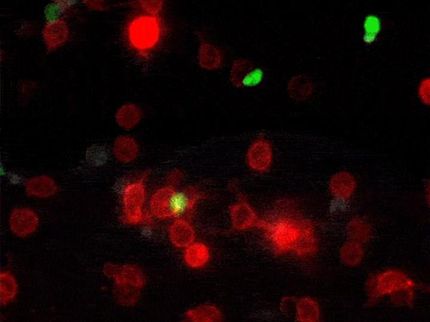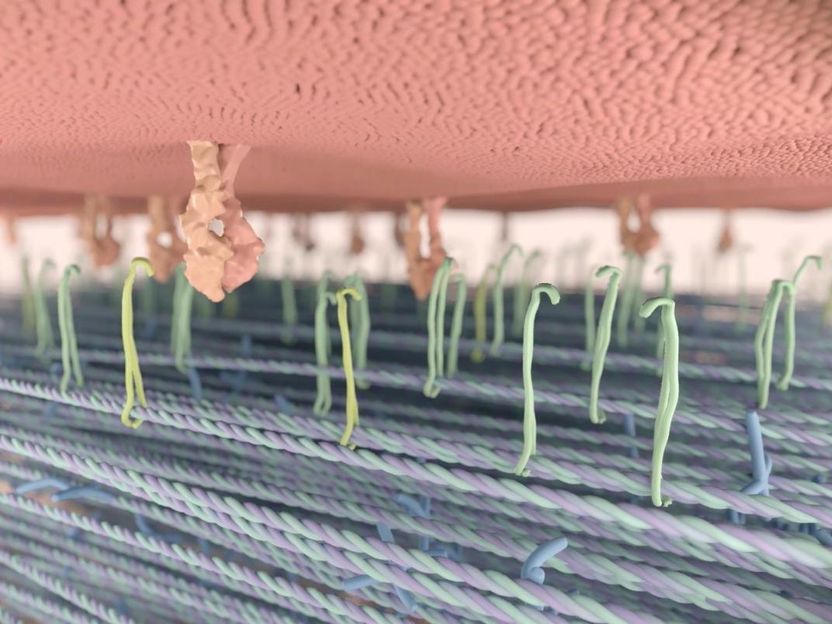HIV infection: Better understanding the reservoir of virus in the body
Researchers have developed a method that allows resting human immune cells to be genetically analyzed in detail for the first time.
CD4+ T cells are important parts of the immune system and play a key role in defending the body against pathogens. As they possess a great variety of defense mechanisms against HIV in their resting state, they are infected only very rarely – but these few infected cells form a latent reservoir for HIV in the body that currently cannot be reached by antiviral drugs. Consequently, the virus can spread again from there after activation of the CD4+ T cells. Understanding how HIV interacts with resting CD4+ T cells is essential for finding new therapeutic approaches. Scientists led by Prof. Oliver T. Keppler from the Max von Pettenkofer Institute at LMU have now developed a method that for the first time allows these specific immune cells to be genetically manipulated under physiological conditions in an efficient and uncomplicated manner. As the authors report in the journal Nature Methods, this permits previously unobtainable insights into the biology of these cells.

Symbolic image
pixabay.com
Resting CD4+ T cells had been scarcely amenable to genetic manipulations, because the available methods generally presuppose dividing cells, as Keppler explains. “And resting cells do not divide by definition.” As the first step in the development of the new method, the team of scientists optimized the cultivation conditions. As a result, the researchers were able to keep these cells alive in the laboratory after extracting them from the blood of healthy donors not just for 3-4 days as before, but for up to six weeks. The decisive progress came with an advance in nucleofection, a special method that allows reagents to be delivered into the nucleus of a cell. Using this technique, the researchers introduced the genetic scissors CRISPR-Cas into resting CD4+ T cells, enabling them to make targeted modifications to the genome of the host cells — for example, by eliminating genes by means of so-called knockouts. “This combination worked very efficiently, and we were able to reach and genetically manipulate around 98 percent of the cells. Moreover, we did this without activating the CD4+ T cells,” says Keppler. “What was particularly exciting was that we were able to eliminate up to six genes simultaneously with high efficiency by means of a single nucleofection. Nobody had managed to do that in primary cells before — and we did it with cells isolated from an intact organ.”
Gene knock-out and knock-in
In the future, the researchers will thus be able to eliminate individual genes and whole signaling pathways and analyze their functions. By knocking out the corresponding genes, they have already managed to clarify whether four previously controversial cellular factors play a role in infection with HIV or not.
On top of this, they pursued a second “knock-in” approach, whereby additional or slightly modified genes are inserted, such as a gene for green fluorescent protein (GFP). With the help of this protein, researchers can analyze how the activity of a target gene changes under certain conditions, or they can mark specific proteins. “All these things together give us the opportunity for the first time to investigate the interaction of HIV with human resting CD4+ T cells under physiological conditions,” explains Adrian Ruhle, co-lead author of the study. “But we can also investigate these cells better in their general role as immune cells beyond HIV.” In the long term, the researchers hope that having a better understanding of the biology of these cells will lead to new approaches for the total elimination of HIV from the bodies of patients, as there are still around 37 million people worldwide infected with the virus.
Original publication
Manuel Albanese*, Adrian Ruhle*, Jennifer Mittermaier, Ernesto Mejías-Pérez, Madeleine Gapp, Andreas Linder, Niklas A. Schmacke, Katharina Hofmann, Alexandru A. Hennrich, David N. Levy, Andreas Humpe, Karl-Klaus Conzelmann, Veit Hornung, Oliver T. Fackler and Oliver T. Keppler; "Rapid, efficient and activation-neutral gene editing of polyclonal primary human resting CD4+ T cells allows complex functional analyses"; Nature Methods; 2021
Most read news
Original publication
Manuel Albanese*, Adrian Ruhle*, Jennifer Mittermaier, Ernesto Mejías-Pérez, Madeleine Gapp, Andreas Linder, Niklas A. Schmacke, Katharina Hofmann, Alexandru A. Hennrich, David N. Levy, Andreas Humpe, Karl-Klaus Conzelmann, Veit Hornung, Oliver T. Fackler and Oliver T. Keppler; "Rapid, efficient and activation-neutral gene editing of polyclonal primary human resting CD4+ T cells allows complex functional analyses"; Nature Methods; 2021
Organizations

Get the analytics and lab tech industry in your inbox
By submitting this form you agree that LUMITOS AG will send you the newsletter(s) selected above by email. Your data will not be passed on to third parties. Your data will be stored and processed in accordance with our data protection regulations. LUMITOS may contact you by email for the purpose of advertising or market and opinion surveys. You can revoke your consent at any time without giving reasons to LUMITOS AG, Ernst-Augustin-Str. 2, 12489 Berlin, Germany or by e-mail at revoke@lumitos.com with effect for the future. In addition, each email contains a link to unsubscribe from the corresponding newsletter.
























































